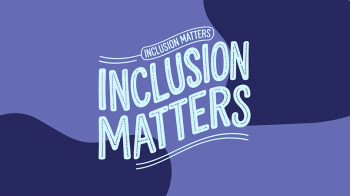The German language opens up many opportunities for people, whether it is for learning, work, or travel in appropriate countries. To objectively evaluate one’s competence in the language, taking appropriate tests is essential. These German tests function as both assessment tools and crucial steps in the learning journey; they help organize knowledge, pinpoint weaknesses, and inspire continued learning.
There are many different tests, each designed for specific purposes and audiences. For example, TestDaF is a key assessment for those planning to enroll in universities. It appraises language expertise at an academic level, which is important for future graduates. The Goethe-Zertifikat, developed by the eponymous institute, covers all positions of aptitude from starter to specialist and is applicable for scholarly and professional purposes. TELC, which is The European Language Certificates, offers specialized German tests fruitful for specialists in various fields such as health and medicine and business. They encourage determining the current rank of knowledge and play an important role in assembling for further education. They promote systematic language work, including consistent practice in reading, writing, as well as listening, and speaking.
Which tests are available to assess language proficiency
To appraise proficiency in German, there are not only international examinations mentioned earlier, but also many other tests that assist steer the learning process in the right direction. They can be divided into several categories: inquiries with answers, level-based tests, educational, and specialized ones.
Online tests with answers offer a quick and effective way to assess one’s knowledge. For example, the tutoring service TeMa provides access to various specialists for consultations and offers materials such as tests with answers that can be taken on their platform. These tests usually cover grammar, vocabulary, listening, and reading skills. They help determine your current proficiency level and provide recommendations for further learning. Additionally, you can take these online tests regarding the CEFR standards, which helps evaluate if your skills meet the specified criteria.
The following levels are globally accepted:
- A1 (beginner) involves know-hows of basic expressions and grammatical structures;
- A2 (elementary) includes conducting simple conversations and understanding short texts;
- B1 (intermediate) is necessary for understanding the main ideas of the language and the ability to communicate on most topics;
- B2 (upper intermediate) is achieved when the student writes clearly, understands complex formulations, and specialized topics;
- C1 (advanced) involves fluent language mastery and expressing thoughts without difficulty;
- C2 (proficiency) refers to native-level mastery.
There are also many specialized tests that can be useful in specific contexts. For instance, inquiries on knowledge of professional vocabulary, grammar, or understanding specialized texts such as scientific articles or legal documents. They help deepen insight in a specific area and prepare for professional activities.
Special mention deserves practice tests for school children. They are adapted to the age characteristics and curricula, allowing students to effectively check their familiarity and produce for exams. Such ones may include tasks to check grammar, dictionary, text comprehension, and oral speech, assisting students prepare for final tests and improve their performance.
For effective learning and test preparation, it is also important to find a qualified teacher. The tutoring platform TeMa can benefit with this, offering a wide selection of German language teachers. Tutors will help develop all necessary masteries and assist in justifying answers to attempts and constructing their logic.
Preparing for Successful Testing: Tips for German Language Learners
Compelling preparation requires a systematic approach and the utilization of various resources. The first step is to assess your language competence level and select the appropriate test. Regular sessions with a teacher or in a group supply feedback and help identify weaknesses.
Next, it's advisable to follow these steps:
- Reading native materials, such as magazines or articles.
- Creating a language environment by communicating with native speakers.
- Practicing writing by keeping a journal and engaging in various writing exercises.
- Including beginner-level tests in your preparation.
- Consulting with a qualified instructor.
Using authentic materials like newspapers, books, podcasts, and movies enhances reading and listening skills. It's important to choose materials that match your current language degree, gradually increasing complexity. Creating a language environment is a key aspect of successful preparation. Regular communication with native speakers, participation in language clubs, or exchanges help develop dialogue skills and self-confidence.
To boost writing skills, it is recommended to keep a journal, write essays on various topics, and practice exam-style tasks. Written works should be reviewed by a native speaker for constructive feedback. Taking practical tests allows you to appraise your precaution stage and accommodate the exam format. Online German tasks provide access to sample tasks and practical tests, helping you figure out the assessment structure and improve time management.
For efficient learning and test preparation, it is also important to find a qualified instructor. The TeMa tutoring service suggests a wide selection of German language teachers. Tutors not only assist prepare for tests but also develop all necessary skills, including grammar, vocabulary, speaking, and listening. Regardless of your goals—whether it is gaining your present level, preparing for assessments, or enriching know-hows in a definite area—there's always a suitable test to aid achieve desired results.
Using Tests for Additional Learning and Language Proficiency Enhancement
Test results help identify assets and drawbacks, giving you a chance to focus on particular areas that need improvement. Analyzing mistakes enables targeted work on problem areas. For example, if difficulties in understanding written text are identified, more attention should be paid to reading various materials in German. Regular reading practice improves information perception skills and expands vocabulary.
Online tests are a convenient option for setting specific goals and planning further learning. For instance, successfully passing B1 can serve as motivation to assemble for a higher position like B2. Continuous striving for improvement stimulates progress and maintains interest in language training.
Tests can be utilized as a means of monitoring study regularity. Planning intermediate inquiries, such as once a month, assists track headway and adjusts the training plan. These interim checks encourage maintaining study regularity and motivation to achieve set goals. Whether they are tests for beginners in German or specialized quizzes for professionals, each of them serves to accomplish set aims and enhance skills.
Participating in specialized tests, such as TELC or ÖSD for specific professional fields, helps deepen intelligence in business or medical language. It is especially advantageous for those planning to study or manage in European countries. Participation in global assessments and obtaining certificates opens up new prospects for career growth and education. Internationally recognized diplomas, such as Goethe-Zertifikat or TestDaF, advance competitiveness in the job market and allow acceptance to German universities without additional exams. Do not forget the excuse to take online tasks to consistently comprehend your stage and know what aspects to concentrate on.


-preview.png)